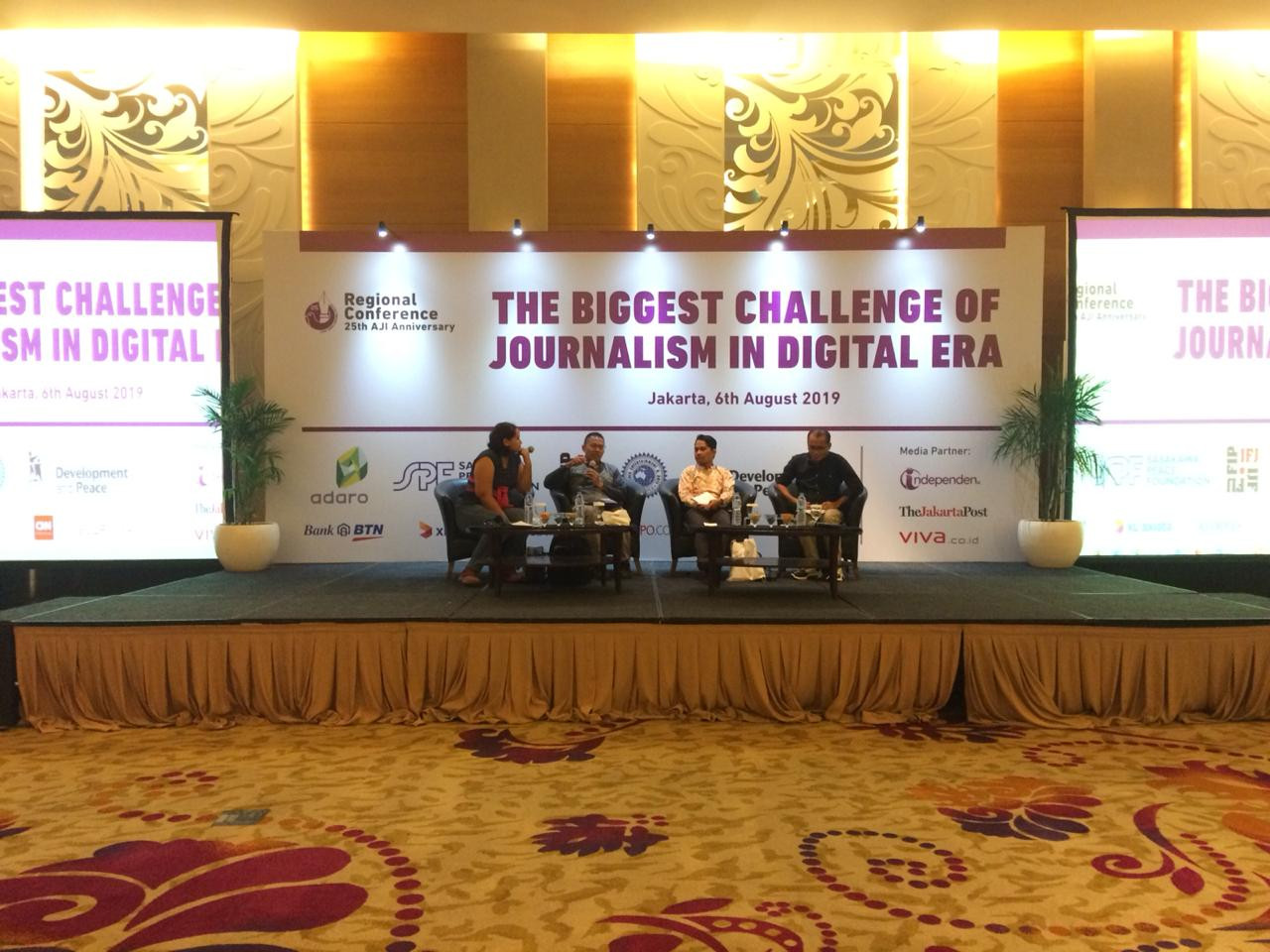Popular Reads
Top Results
Can't find what you're looking for?
View all search resultsPopular Reads
Top Results
Can't find what you're looking for?
View all search resultsCollaboration among media organizations key to survival in digital era: Journalists
As the rise of the internet has affected news distribution in the digital era, journalists are facing new challenges as they have to adapt to these new changes.
Change text size
Gift Premium Articles
to Anyone
In the digital era, journalists, like many other professions, have no better option but to adapt to the new changes.
During a regional conference titled “The Biggest Challenge of Journalism in Digital Era” in Jakarta on Tuesday, journalists from across Southeast Asia gathered to discuss alternatives to overcome the challenges they have to face today.
A speaker, the chairwoman of the International Federation of Journalists (IFJ) in Asia Pacific, Jane Worthington, said in a panel that collaboration was important to survive the digital era.
“Our journalists can survive in this digital era by collaborating with each other,” Jane said.
Media collaboration is gaining traction in Indonesia, with dozens of media organizations teaming up to establish a fact-checking mechanism involving digital newsrooms from across the country to fight the spread of false news, among other things.
With Google and Facebook taking up to 85 percent of the world’s advertising, Jane went on to say it was no wonder that independent media organizations were struggling to survive. Hence, she said, it was inevitable that many jobs would disappear, employment conditions would worsen and work would become more precarious.
She also said a high number of newspapers had stopped printing in every country in Southeast Asia, forcing journalists to strengthen their digital capacities and adapt to new techniques and platforms.
Responding to this, the regional director of Media Entertainment and Arts Alliance Australia (MEAA) in Victoria, Adam Portelli, said that journalists also needed to optimize social media use.
“Media workers should maximize the use of social media. They should also use it to interact, and the most important part, use it to involve the younger generation,” he said.
The conference, which was organized by the Alliance of Independent Journalists (AJI) in light of its 25th anniversary, also invited Tempo editor-in-chief Wahyu Djatmika, National Union of Journalists of the Philippines (NUJP) chairman Nonoy Espina, and Malaysiakini's Steven Gan as speakers. (dpk)










